Revitalization: The Goal of Historic Academic Restructuring
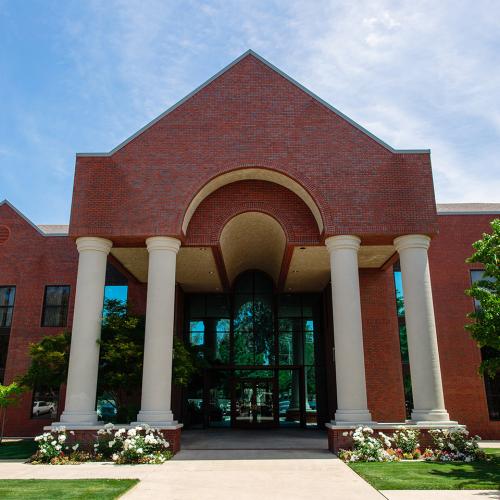
A historic reorganization of the academic structure will revitalize how Fresno Pacific University serves its students.
“This academic realignment will help FPU uncomplicate processes, improve the effectiveness and sharpen the focus on students’ professional, personal and spiritual education,” said FPU President André Stephens, Ph.D., who initiated the change. “As the Valley’s Christian university, FPU is dedicated to putting students at the center of all we do.”
In January 2024, FPU consolidated its five schools—the School of Business, the School of Education, the School of Natural Sciences, Fresno Pacific Biblical Seminary and the School of Humanities, Religion and Social Sciences—into two: the School of Arts and Sciences (SAS) and the School of Graduate and Professional Studies (GPS). New leadership was in place by the end of summer.
Graduate, traditional undergraduate and bachelor’s degree completion programs in business, nursing, social work and education are housed in GPS, along with the seminary, while traditional undergraduate and degree completion programs in the sciences, visual and performing arts and social sciences—history, psychology, etc.—are part of SAS. The general education program and majority of courses are also part of SAS.
Advantage Students
Among the new structure’s benefits is that it allows us to serve students both by population (graduate, traditional undergraduate and degree completion) as well as maintain disciplines within single schools. For example, undergraduate students studying education or business can work seamlessly with faculty should they decide to continue their education in a graduate program. In addition, the structure of faculty-department chair-dean is now consistent across the university, providing clear organizational pathways for students.
“One of the really great things about this system is how it manages to serve students, not only by population but also by discipline,” said Alison R. Noble, Ph.D., provost and senior vice president of academic affairs. “It is a structure developed with the student in mind.”
The restructure is part of an overall academic revitalization at FPU. “Revitalization is not just about organizational structures, it also includes examining the curriculum, both content and sequencing, to identify areas that may need updates or revisions,” Noble said. In addition to the curriculum, it includes tuning the co-curriculum and academic support to the university’s changing student body and finding ways to provide appropriate avenues for belonging and support. Noble adds that “it is important that we use effective and inclusive pedagogy, and that we provide students opportunities to explore the questions of faith around their disciplines.”
New Leaders, New Roles
The two school deans and three associate provosts all report to the provost. “The deans are responsible for the schools and the academic programs in the schools,” Noble said. “The associate provosts are responsible for specific programmatic areas.”
Filling the positions are a mix of administrators new to FPU and familiar faces in new roles:
Provost
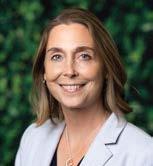 Noble comes to FPU from Messiah University where she served as interim provost, associate provost, assistant provost and director of faculty development and professor of chemistry.
Noble comes to FPU from Messiah University where she served as interim provost, associate provost, assistant provost and director of faculty development and professor of chemistry.
Deans
 Michelle Bradford, Psy.D., is dean of GPS. She had been interim dean of the School of Business, assistant professor of business and head of the MBA program.
Michelle Bradford, Psy.D., is dean of GPS. She had been interim dean of the School of Business, assistant professor of business and head of the MBA program.
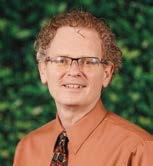 Quentin Kinnison, Ph.D., is dean of SAS after being associate professor of Christian ministry and director of the Christian ministry and leadership program.
Quentin Kinnison, Ph.D., is dean of SAS after being associate professor of Christian ministry and director of the Christian ministry and leadership program.
Associate provosts
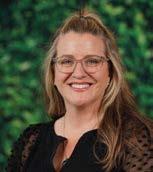 Kerry Sue Brown (MA ’17, BA ’97), Ph.D., is associate provost for student success and retention. She had held positions at FPU in the Academic Success Center and director of student retention and persistence.
Kerry Sue Brown (MA ’17, BA ’97), Ph.D., is associate provost for student success and retention. She had held positions at FPU in the Academic Success Center and director of student retention and persistence.
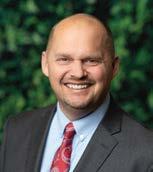 Drake Levasheff, Ph.D., is associate provost of adult learning. He had been director of the Orange County and Murrieta regional campuses of Azusa Pacific University.
Drake Levasheff, Ph.D., is associate provost of adult learning. He had been director of the Orange County and Murrieta regional campuses of Azusa Pacific University.
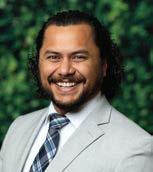 Norlan Hernández, Ph.D., is associate provost of engagement and inclusive teaching and learning. He was formerly director of the Jesse Miranda Center for Hispanic Leadership at Vanguard University.
Norlan Hernández, Ph.D., is associate provost of engagement and inclusive teaching and learning. He was formerly director of the Jesse Miranda Center for Hispanic Leadership at Vanguard University.
In her former role, Noble helped lead an academic restructuring at Messiah University when it consolidated five schools into three. Academic restructuring, particularly when reducing rather than expanding the number of schools at a university, can be challenging, she said. “At the same time, creating a structure that allows for disciplinary integrity and interdisciplinary collaboration can strengthen institutions, particularly smaller universities, by fostering communication and cooperation.”
Consolidation is an effort to be fair and fiscally responsible in times when universities are making cuts in multiple areas, including faculty and majors. “We need to know that as we make changes in the faculty, we’re also making changes in the administration,” Noble said.
A Hopefule Future
While the challenges are real, for FPU and other colleges and universities, now is the time for hope, Noble said. “I appreciate the vision that President Stephens continues to set for the university and am encouraged by the dedication of administration, faculty and staff in fulfilling the mission of Fresno Pacific as a Christian university serving the Central Valley. I’m excited by what’s to come.”
